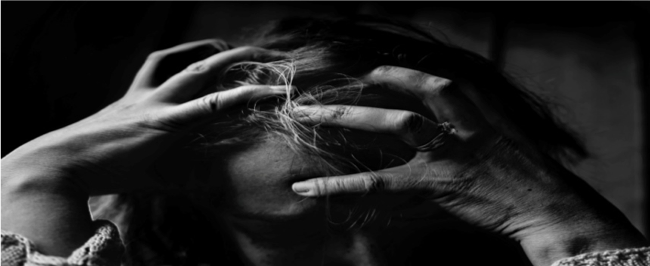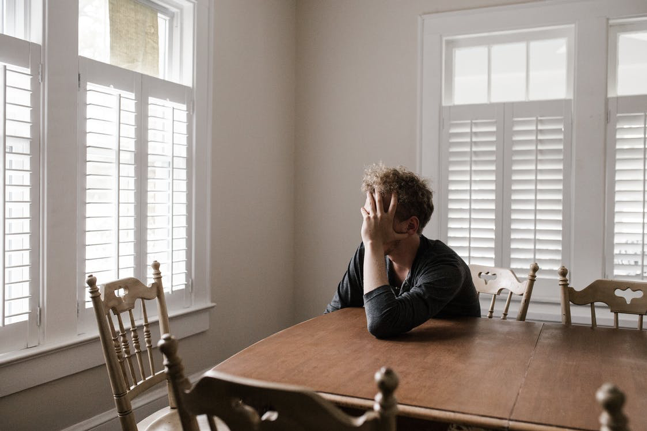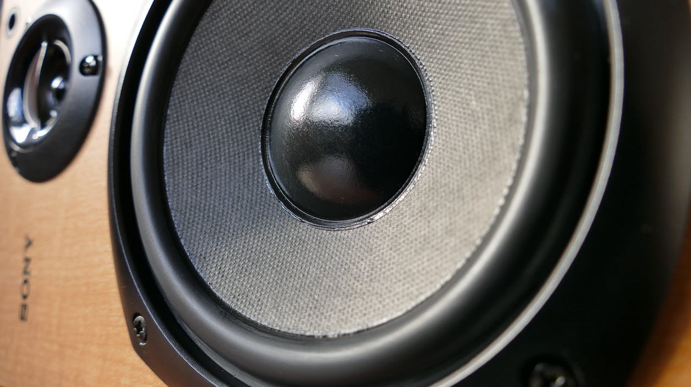 Stephen Geller Katz LCSW-R
Stephen Geller Katz LCSW-R
Misophonia Cognitive Retraining Therapy
 Stephen Geller Katz LCSW-R
Stephen Geller Katz LCSW-RMisophonia Cognitive Retraining Therapy
Misophonia Cognitive Retraining Therapy, as featured on the MTV True Life episode: “I Have Misophonia” premiering Friday, December 16th, 7:00 PM EST. See Clip >
|
|
|
| Moderate to severe anxiety triggered by chewing sounds, including: | ||
|
|
|
You may also be affected by visual stimuli, such as repetitive foot or body movements, fidgeting or movement you observe out of the corners of their eyes. Intense anxiety, rage and avoidant behavior may develop as a result of misophonia.
 * Do you feel your family and friends don’t understand how much you suffer?
* Do you feel your family and friends don’t understand how much you suffer?
* Do you often feel you can just suffer through a social event where there is eating present only to find that you must “escape” before you have a panic attack?
* Do you find that some people are at first understanding and make some efforts not to make the triggering sounds in front of you, but soon forget and constantly have to be reminded, causing you to feel angry, anxious and depressed?
* Are you avoiding social activities that you enjoy because of the misophonia?
* Are you fearful of losing your job and/or is the misophonia effecting your job performance?
You may be a candidate for Misophonia Cognitive Retraining Therapy, or MCRT.
Stephen Geller Katz, LCSW-R, with over 20 years of clinical experience, a New York University graduate, developed Misophonia Cognitive Retraining Therapy and founded Misophonia Cognitive Center™ in response to the growing number of people with Misophonia coming to his private practice from audiologists and ENTs. He discovered that by helping people to retrain and reinterpret the thoughts around their Misophonia, anxiety and depression symptoms began to improve. But even more important so did the Misophonic trigger response.
Anxiety is usually a by-product that occurs when you come across a distressful situation. Majority of scientists that sternly believe on the phenomena of evolution agree to hypotheses made by evolutionary biologists that anxiety is an inherited trait in humans that is important for survival. According to them, the first ever cousins of the human species used anxiety to their advantage, by fleeing from pray and avoiding dangerous outcomes.
Anxiety is a response that has played a critical role in the survival of Homo Sapiens(humans), however, statistics show that with the beginning of the modern information age there has been a sudden rise in anxiety disorders amongst the general population. Anxiety is a fight or flight response that be triggered by countless phenomenon, considering the complexities of human psychology.

Sensitivity to noise and its response in the form of anxiety’ points to a condition that many medical professionals still cannot classify to this day. It is called Misophonia, wherein “Miso” means hate and “phonia” means sound. Misophonia does not necessarily mean hating sound but instead it is more like hating certain and specific sounds so the more appropriate way of describing it would be by calling it a selective sound sensitivity syndrome. The term ‘misophonia’ is more popularly used.
The sounds that a person suffering from misophonia can be sensitive to and the intensity of emotional response caused by it vary from person to person. Loud chewing is an example of a sound that can be annoying for a person with misophonia. Chewing noises are the most common sounds that trigger an emotional response in people who have sensitivity to selective sounds.
Noises that can derail emotional stability can be the sound of heavy breathing, which is the second most common trigger for people with misophonia. If you have a problem with people who breathe too loudly, then you also could have a minor condition of misophonia. Other noises include feet stomping, pen clicking, keyboard tapping, window wiping, and finger snapping. Familiarity between all these sounds is the repetitive motion in which they occur. This explains why a subtle or loud noise that occurs repetitively triggers a misophonic person.
If we are to compare this condition with any other condition, the ones that come closest are ASMR and Hyperacusis. ASMR is a sort of audio stimulation, it also invokes an emotional and physiological response to any audio, which most people describe as a pleasant experience. In contrast, Misophonia is also a physiological and emotional response to sound, but it is not a very enjoyable experience. Instead, it can even trigger extreme reactions from some patients.
Rage, frustration, and anxiety are the most common psychological symptoms that people with Misophonia have to suffer from. Unlike hyperacusis, which is a condition that makes people intolerant to loud music, a person suffering from Misophonia has no problem with the intensity or amplitude of sound waves but some psychological disability to tolerate certain sounds. The complexity of this disorder is beyond bounds, diagnosing it has been difficult for doctors. However, recent studies have made us understand and treat this disorder better.

(Source)
The medical science community is still discovering new information about this illness, many suggest that it is a symptom of other mental disorders. Patients with autism and obsessive compulsive disorders are more likely to show symptoms of noise sensitivity. It can also be found in people with Tourettes Syndrome. Normal patients with Misophonia were subjects of a recent study conducted by the University of Neuroscience.
The brain scans of healthy people and people with the disorder were compared and the study shows that there are differences between the brain activity of healthy people and people with noise sensitivity. This is good news for the people suffering with this abnormality as this study indicates new progress in the treatment of Misophonia. We still do not know for sure how this disorder arises and why it can be such an obstacle for some patients to overcome. Neuro-biology still has miles to cover until we can fully understand how the brain works and how the workings of the neural pathways dictate our behavior. This is why psychological disorders like these remain unclassified and for a long time untreated.
You should not take Misophonia, otherwise known as a ‘selective sound sensitivity syndrome, lightly. People need to start thinking about this disorder as a serious concern. People with severe or minor Misophonia tend not to seek treatment. This is because the disorder is still not classified as a legitimate mental illness. This is why most cases of Misophonia are left unreported.
The point of sharing all this information about this disorder is that so you can identify people who suffer on a daily from this and help them get treated. We provide extensive methods that treat Misophonia at the Misophonia Cognitive Center™.
What causes hatred of certain sounds? Misophonia is a condition that involves having an aggressive irritation towards some sounds. It literally means that the person suffering from this condition hates sounds cannot control their own emotions.
Basic sounds that can trigger misophonia include everyday sounds, such as repetitive oral sounds, breathing, and chewing sounds along with sounds of pencil tapping and typing. A person with misophonia can feel anger just by listening to triggering sounds of a keyboard or a pencil.

(Source)
Experts have yet to declare misophonia a mental illness, but they are also confused. Research has proven that the brain of a misophonia patient reacts differently than the non-misophonia patient. But there is limited research on this topic, so experts cannot say the main cause of this condition. The posterior medial cortex and the medial frontal cortex are way more active when they hear triggering sounds. Misophonia patients also give the sign that they are in distress by sweating and an increased heart rate when they hear these types of sounds.
The initial symptoms that people who are suffering from misophonia may experience include:
The response towards triggering sounds is called autonomic, and usually, the person is very angry and enters in a situation to fight or flight from the moment. The flight and fight response is also a response to acute stress. It is a natural way of defending the body when the situation seems threatening. In this situation, various things occur as a part of the response:
The research has shown that people with misophonia have increased body temperature, heartbeat, and blood pressure.
All these responses are the body’s natural way of responding to threatening stimuli. However, no one knows why people suffering from misophonia respond like this to triggering sounds, but according to different research, this is an involuntary response. People suffering from a chronic condition often feel anxiety, rage, and panic due to these triggering sounds.
People with this condition try hard to avoid any exposure to triggering noises. They also socially isolate themselves or develop interesting and unique coping mechanisms. Many patients also start wearing headphones or create different noises to blend and drown out the sounds that irritate them.
There are no proper criteria for the diagnosis of misophonia. This is because it is still not recognized by the Diagnostic and Statistical Manual of Mental Disorders, Fifth Edition (DSM-5).In 2013, diagnostic criteria were proposed and published. Researchers suggested that this condition be a discrete and separate psychiatric disorder. Researchers also noticed that although this condition is similar to other conditions such as OCD, different phobias, intermittent explosive disorder, the patterns of the symptoms for misophonia do not fit any of these diseases, and the characteristics are totally different. In the above-proposed criteria of misophonia, it is characterized by:
As there are no official methods to diagnose this condition, doctors may recommend various methods of treatment so you can manage to decrease the symptoms.

(Source)
Accurate reasons for people developing misophonia are still unknown. However, you can define this condition in various methods and by considering different factors.
According to many researchers, people suffering from misophonia may develop connectivity among the auditory cortex and AIC or anterior insular cortex, which is an area in the brain responsible for emotional processing.
People suffering from OCD or obsessive-compulsive disorder, anxiety disorder, or Tourette syndrome are likely to develop misophonia.
Misophonia is very common with people who are suffering from tinnitus. In this condition, a patient will hear a continuous ringing noise.
This condition also runs in families, so there may be a genetic component responsible for increasing the risk of this condition.
Many people are creating awareness about this condition, but still, there is very limited research about misophonia. Even the epidemiological evidence of this condition is not available. If you or your loved ones suffer from this condition, we know how hard it can be for you to talk about it.
We will help you with your misophonia. For setting up an appointment with our professional doctors, you can contact us at 646-585-2251 or visit our website.
Do you have a hatred of sound? If you notice that you cannot bear with some sounds, which are normal and are part of daily life, then you might have “Misophonia.” Misophonia is a disorder, which makes some sounds unbearable for you. These sounds may be from daily life and inaudible for many other people. Such sounds trigger violent reactions, annoyance, physical disturbance, and headaches. In simple words, misophonia is hatred towards a particular sound. “Selective sound sensitivity syndrome” is another name for “misophonia.”
Sounds that trigger a reaction are called “trigger sounds.” When a person with misophonia hears a trigger sound, they will portray an unreasonable behavior. If you ask a person with misophonia about the trigger sound, they will tell you, “Such sounds drive me crazy.”
When you talk about misophonia, the reaction level can vary. Some people have severe misophonia, and some people have it mildly.
People with severe misophonia might get violent when they hear the trigger and have negative thoughts because of the sound. If you have it mildly, you may feel annoyed by the trigger sounds. In some cases, you may start panicking, and when you hear the sound, you may need to move away from the origin of the sound.
Trigger sounds are mostly sounds that you hear in your daily life. These sounds may be very soft, but at times they can be loud.
If you have misophonia, yoyu are likely to say that oral sounds trigger you the most, including sounds like chewing, loud breathing, eating, slurping, and whistling. Repetitive sounds are also trigger sounds, and sounds likea ticking clock ticking, drilling, fingers tapping, the sound of a marker, or sound of a fan are great examples.
You will see in some researches that people with this disorder have an intense reaction to repetitive motions. Some misophonics also react to repetitive visual stimuli like the phonic stimuli. Some studies show that most people with misophonia develop issues in their brain, that doesn’t allow them to filter sound. Experts say this is due to a higher amount of myelin in their nerve cells in the brain.
In most cases, a person develops a negative relationship with sounds in their early stages of life. During their childhood, they experience some traumatic events around that sound. It is also possible that they heard the sound at the time when they experienced something negative.
The DM and ICD do not recognize misophonia as a disorder. DSM does not have any information related to Misophonia until the fourth edition, and ICD does not recognize until the tenth edition. They neither call it a hearing disorder, nor do do they call it a psychiatric disorder. Many researchers are still finding information about the disorder. They are trying to study the core of the problem.
But if you observe the condition yourself, you will feel that the disorder might be an anxiety disorder. To be specific, it might be sound-emotion synesthesia. Up until 2018, it wasn’t clear if it was even a condition or it was a symptom of some other condition.
Since the disorder is a relatively discovery, doctors have not designed super-effective treatments for it. Healthcare providers will guide you through some coping strategies. There are therapies like cognitive behavioral therapy, tinnitus retraining therapy, but there is no evidence that these therapies have ever cured the disorder.
Some people also ask misophonics to mediate. It helps to calm yourself down, and the sounds seem to affect you less. Meditation enables you to go into a zen mood. It relaxes your body, and you feel calmer.
There are millions of people who enjoy the sounds of eating and other soft sounds. But other people find the same sounds triggering and annoying. The triggering sounds are soft, everyday sounds, which might get a reaction out of people.
Many studies have been made concerning this subject, but so far, no research can identify the main cause of this disorder. Some studies suggest that the disorder is genetic, while others argue that it is an extended form of OCD.
Up until now, there were no fully developed treatments for the disorder. Healthcare providers suggest certain therapies that might help you to some extent, but these may not entirely treat your disorder.
For more information and to schedule an online session, contact Stephen Geller Katz today:
Misophonia is a widespread disorder, which is common amongst 20% of the world’s population. In simple words, misophonia is a disorder that refers to hatred or resentment toward specific sounds.
Misophonia was first named ‘Selective Sound Syndrome’ in 1997. Most people say that it is the right name for it because misophonic sound triggers are usually soft sounds, which may seem loud. Trigger sounds are mostly from daily life. The sound may be of a bell ringing, a keyboard typing, tapping, chewing, slurping, and whatnot.
When you talk about its diagnosis, all researches speak differently about it. In a few pieces of research, the researcher considers it as a mental disorder. Some say that it is a hearing disorder, and some even claim that it is an extensive form of OCD.
The most prestigious psychology guidebooks do not acknowledge the existence of misophonia up until now. Researchers are still finding proof that causes the disorder. They are confused if misophonia is a disorder itself, or it is a symptom of some other more severe disorder or mental illness.
Many researchers say that misophonia marks boxes to consider it as a disorder, but the psychiatrists’ community is still confused about the disorder.
Misophonia reactions vary from person to person. Every misophonia case is very different from one another. There are various forms and levels of misophonia. If you have a more severe form of misophonia, then you would react to the trigger sound more aggressively. You might burst out of anger or start flipping things. If you have a mild form of misophonia, then you would react to getting annoyed. In both cases, you would want to flee.
80% of the misophonia sufferers have hatred towards vocal sounds. In current times almost everybody is a big fan of ASMR the misophonia patients cannot stand the sound of chewing, eating, and slurping. Some people even find it very annoying when someone whispers.
Misophonia sufferers find repetitive sounds very annoying. If you face issues with this type of misophonia, then you will find sounds of typing, pen clicking, loud footsteps, drilling annoying, then you might be suffering from misophonia.
Many misophonia sufferers even get triggered by repetitive actions. If you find it annoying when someone is swinging their legs and sight of constant typing, in that case, you are still suffering from misophonia.
Misophonia is a complicated disorder to handle. If you have this disorder, then you know that simple everyday sounds can trigger you very easily. The people are still searching for effective treatments for the disorder. The health care providers suggest various exercises and treatments for the disorder. The therapies do not entirely wipe out the disorder, but they will help you in dealing with it gradually.
It is one of the most famous therapy suggested for misophonia. In the treatment, the healthcare provider recommends you some exercises which will help you in tolerating the noises better. The therapy has helped a few people, but it did not cure misophonia by any means.
It is the type of tinnitus therapy. During the treatment, the healthcare provider will try to replace your negative responses towards the stimulus into positive responses. According to Johnson, 85% of the sufferers have found relief in the result of the therapy.
No medicine to time has proven to work for misophonia sufferers. Many psychiatrists suggest that the misophonia sufferers should resort to therapy to battle with the disorder. Their families should also volunteer for therapy because the disorder is affecting them as well.
The US Food and Drug authority does not suggest medicine for the disorders, so it is better that you also avoid taking medication for the disorder.
Misophonia is a widespread disorder around the world. It is hatred towards specific everyday sounds. Misophonia cases are very different from one another. Every person has a different trigger sound and a different level of responsibility towards the sound. There are various treatments introduced to deal with misophonia now.
Schedule an online session today:
 Imagine walking around your home or apartment getting ready for work. Your child was just in the bathroom washing their hands and they didn’t filly turn the faucet off. The quiet drip of the faucet in the background echoes through each and every room in your home. It grows increasingly more aggravating the longer you hear it. You go to turn the faucet off and flip the light switch in the bathroom so you can see. The hum of the iridescent light buzzes in your ears and causes you a headache. You finally turn the light out, but then notice your partner eating their breakfast in the morning, chewing their food. All of these noises have caused you anxiety and panic, rather than just being a simple annoyance.
Imagine walking around your home or apartment getting ready for work. Your child was just in the bathroom washing their hands and they didn’t filly turn the faucet off. The quiet drip of the faucet in the background echoes through each and every room in your home. It grows increasingly more aggravating the longer you hear it. You go to turn the faucet off and flip the light switch in the bathroom so you can see. The hum of the iridescent light buzzes in your ears and causes you a headache. You finally turn the light out, but then notice your partner eating their breakfast in the morning, chewing their food. All of these noises have caused you anxiety and panic, rather than just being a simple annoyance.
This is the life of someone who deals with a noise disorder. Otherwise known as misophonia, the slight sounds of everyday life can cause great disturbances in people who suffer from this rare syndrome. There is much to learn about noise disorders like misophonia, and your comprehension of these conditions are imperative to understanding how people with them live their life.
Noise disorders are serious illnesses that can significantly hinder how people go about life every day. Since no two people are exactly alike and identical, various different symptoms can be apparent in different individuals. There are many tell-tale signs that point to noise disorders that help us identify whether or not you may be suffering from this kind of disorder. These most common symptoms can include the development of depression, anxiety, inability to control your emotions when exposed to particular sounds or noises, and potential anger and uncontrollable rage with associated noises or sounds. This is not a comprehensive list of symptoms, as some cases can be more severe than others.
With these symptoms being portrayed in your actions or daily life, along with your vocal experiences and input shared with us, we’re able to determine if you truly suffer from a noise disorder. This will also help us create a treatment plan for you and how to improve your future life. Living with misophonia and noise disorders can be detrimental, so it is important that you seek treatment as soon as you experience potential symptoms.
Thankful to the increase of medical knowledge and technological advances over time, doctors and management centers like us have been able to identify various forms of treatment that can positively impact people’s lives when dealing with misophonia. Regardless of how severe your symptoms are and what sounds are affecting you, plenty of treatment options are available.
Some of the most common treatment forms include cognitive behavior therapy, wearing earplugs, the use of behind-ear sound projectors, and other various kinds of talk therapy. There is a treatment option available to you no matter what form of misophonia or noise disorder you are dealing with.
Living with noise disorders can create great pain and torment in life, so it is import that you work to combat these as soon as possible. If you’re unsure of where to begin with your treatment, reach out to us here at the Misophonia Cognitive Center. Steven Katz LCSW can help diagnose your noise disorder and provide you with the exact type of treatment that you need. Contact us to schedule an appointment with us to relieve your negative symptoms as soon as possible! Stop living in pain and come visit us today.
Steven Geller Katz, LCSW
646-598-2251